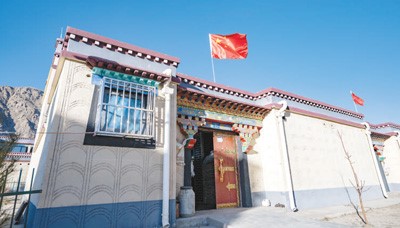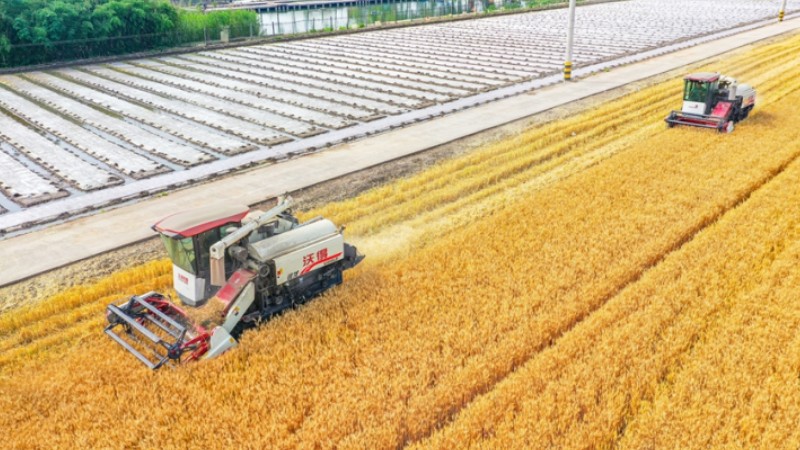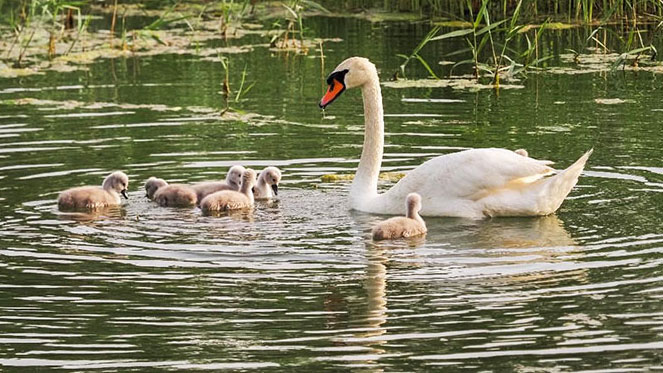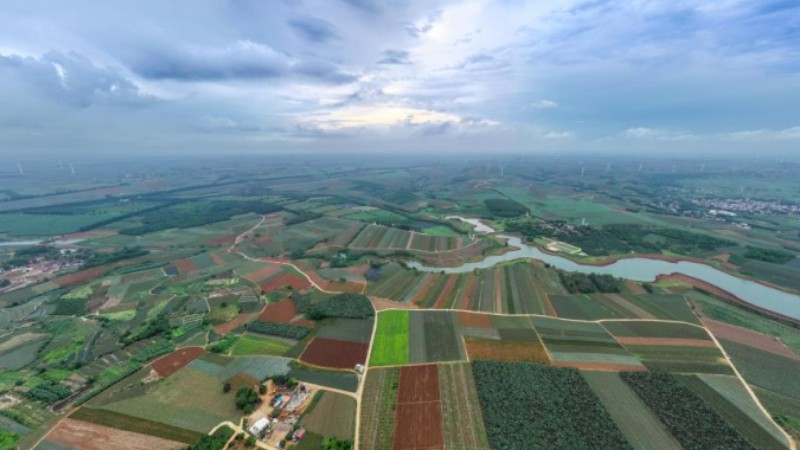Tibetan family embraces happy new life after ecological relocation
After being relocated from a village at an altitude of 5,000 meters to a resettlement site at an elevation of 3,600 meters, Lodawa, an elderly villager in southwest China's Tibet Autonomous Region, has been seeing a better life for his family.

Photo shows Lodawa’s new house. He is an elderly villager in southwest China's Tibet Autonomous Region. Lodawa's family has been relocated from a village at an altitude of 5,000 meters to a resettlement site at an elevation of 3,600 meters for a better life. (Xu Yuyao/People's Daily)
In December 2019, Lodawa's family moved from Chacang village, Cuozheqiangma township, Shuanghu county, Nagqu city, Tibet Autonomous Region, to Senburi village, Gonggar county, Shannan city of the autonomous region, under a relocation project aimed at protecting the local ecological environment and providing better living and educational conditions for people inhabiting extreme high-altitude areas.
More than 30,000 people like Lodawa have resettled in Senburi village and adapted to their new life.
"Our new life here is healthy and convenient, and it's getting better and better every day," Lodawa told People's Daily while leisurely basking in the sun in front of his home --- a beautiful two-story building his family moved in three years ago.
Annual household income of 100,000 yuan ($14,167)
Lodawa's family, consisting of six members, enjoys a stable annual income of about 100,000 yuan after the ecological relocation. The family's sources of income include government subsidies, dividends from an animal husbandry cooperative, and work at the cooperative.
In 2017, Cuozheqiangma township set up an animal husbandry cooperative. Local villagers have entrusted their sheep and cattle to the cooperative, which manages and grazes livestock together to improve work efficiency and reduce overgrazing. Members of the cooperative receive dividends at the end of the year.
Adults aged between 30 and 40 in the township work in the cooperative on a rotating basis, including Lodawa's son and daughter-in-law.
"Because of the sheep and cattle we invested in the cooperative and the work my husband and I do, my family received 50,000 yuan to 60,000 yuan from the cooperative. It represents the largest part of my family's income," said Xire Tsomo, Lodawa's daughter-in-law.
The relocated people used to move from place to place in search of water and grass, a local official said, noting that it takes time for these people to shift their lifestyle and transform their identity.
"Income from the cooperative and government subsidies from policies on grassland protection can help people with their lives during the transition from herds people to town dwellers," said the official.
In an effort to help the relocated people find work, the local government has organized training in vocational skills at the resettlement site. Xire Tsomo took the opportunity and improved her culinary skills through the training.
Today, Seburi village has row upon row of new houses and shops. And there's a row of restaurants featuring different styles of cooking a 10-minute walk away from Xire Tsomo's home.
"I want to learn more skills. I might open a restaurant one day and cook for a living," she said.

Lodawa, an elderly villager in southwest China's Tibet Autonomous Region, basks in the sunshine in front of his new house. (Photo by Xu Yuyao/People's Daily)
No more joint disease
Besides better living conditions, the relocation project has also brought significant improvement to the health of relocated people.
Living at extremely high altitudes for a long time, Lodawa has been plagued by serious arthropathy, a disease in the joints caused by diabetes, for more than 30 years. He often writhed in bed in agony and couldn't walk when the illness came on.
In 2016, Lodawa went to Chengdu, capital of southwest China's Sichuan Province, to seek medical treatment for the disease. After confirming his living environment, doctors told him that such diseases caused by the natural environment are not likely to be cured.
Still, Lodawa agreed to be operated on his leg. But after surgery, he had continued to feel a dull pain in his leg every winter.
High-altitude regions have a high incidence of arthritis and gout. According to an official of Guogencaqu village, Dodma township, Shuanghu county, the diseases are very common and severe in the locality.
Fortunately, Lodawa saw fundamental improvements in his condition after he moved to Senburi village.
"I had a couple of bouts of arthropathy in the first year since I moved here, and one bout in the second year. Since the third year, I've never felt a pain in my leg," Lodawa told People's Daily happily.
Since his health condition has improved, the elderly man who rarely went out in the past, now takes a walk outside from time to time.
"Our children won't have to suffer from arthropathy any more," Lodawa said, watching children play on the ground near his home.
Teenager dreams of opening online store
Losang Samten, Lodawa's grandson, has adapted well to his new living and learning environments, and is now a sophomore at a vocational high school in Shannan city.

A Tibetan woman named Xire Tsomo and her son Losang Samten pose for a photo. The mother and son, together with other members of their family, have been relocated from a village at an altitude of 5,000 meters to a resettlement site at an elevation of 3,600 meters in southwest China's Tibet Autonomous Region for a better life. (Photo by Xu Yuyao/People's Daily)
"I found out through the internet that the world is so big, and young people can have so many kinds of lifestyles. The outside world is more wonderful than what I had imagined," said the 17-year-old boy, who wants to learn more about computers to equip himself with vocational skills.
"My elder brother majors in logistics at a vocational high school in Shigatse city. Maybe my brother and I can do business together in the future. I'll run an online store, and he'll take care of the logistics services," he said.
More and more local children like Losang Samten are changing their destiny and embracing a brighter future through better education, thanks to a nine-year school built for children in Senburi village.
"The new environment has changed parents' views about education. They attach greater importance to education and hope their children will achieve a better life through education," said an official of the school.
It's worth noting that statistics from the school showed that local elementary school students are taller compared to that of local children in the same grade before the relocation project.
Better ecology, more wild animals
More than half of the area of Shuanghu county belongs to Qiangtang National Nature Reserve, which is inhabited by more than 100,000 Tibetan antelopes and over 20,000 wild yaks. Now that the ecological environment of many grasslands in the nature reserve have been gradually restored since the relocation project, wild animals are returning.
Chacang village, where Lodawa used to live, has also experienced great changes. In the summer of 2020, the village had nothing but dilapidated houses. The following summer, these houses were pulled down, and the place was sown with grass seeds. In 2022, green grass blanketed the area. Today, the village is a paradise for wild animals.
In Rungma township, Nyima county, Nagqu city, where a relocation project was implemented earlier than Cuozheqiangma township, progress in the ecological environment is more remarkable.
Dozang, a boy who moved from Rungma township to Lhasa, capital of Tibet, was excited to find a large herd of Tibetan antelopes when he returned to his hometown not long ago.
In the past, he could only watch such wild animals through iron wire fences. These fences were erected to protect degraded pastures, but posed risks to wild animals, as they would frequently be trapped by the fences.
Such low-cost fences have been removed in many areas, and local animal husbandry cooperatives arrange the number of animals grazing in a pasture according to the capacity of the pasture.
After the ecological relocation project in Rungma township, the township has torn down 25,000 meters of iron wire fences and vacated 1,334 hectares of grasslands. The township has also implemented ecological restoration projects to improve the ecological environment of the areas where people were relocated from.
"More and more grasslands have been returned to nature, and animals have been roaming freely in these areas. This is exactly one of the reasons why we support ecological relocation," said Lodawa.
Photos
Related Stories
- More Tibetan antelopes migrate to Hoh Xil to give birth
- Human activities have little impact on Qinghai-Tibet Plateau: report
- "People of Tibet can enjoy better and more fulfilled lives"
- In pics: scenery of ruins of Guge Kingdom in Tibet
- Scenery of earth forest in Zanda County, SW China's Tibet
- Whole-process people's democracy delivers improved livelihoods in Xizang, China
- Ancient Tibetan medical book added to UNESCO Memory of the World Register
Copyright © 2023 People's Daily Online. All Rights Reserved.









